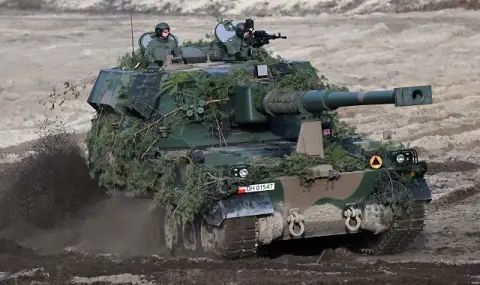Many observers of British politics only now will they pay attention to the likely next vice president of the United States. And in keeping with Donald Trump's penchant for the weird, JD Vance began his tenure as presidential candidate with some unusual musings on Islamists and nuclear weapons, CapX reports.
Speaking at the National Conservatism Conference in Washington last week, Vance speculated which Islamist country would be the first to possess nuclear weapons. "Maybe it's Iran, maybe Pakistan matters now. And then (my friends and I) finally decided that maybe it was actually the UK as Labor had just taken over."
But if Vance's comment is laughable on the face of it, it does reveal the future of Anglo-American relations, as well as what a second Trump presidency could mean for European security more broadly. Indeed, much of Europe recognizes that the US is increasingly reluctant to patch up the security umbrella it has held over the continent since World War II, regardless of who wins in November.
While a May Pew poll showed that Americans continue to largely approve of NATO, support for the transatlantic alliance is declining. Republicans are particularly hostile, with 55% of those who lean toward the party having an unfavorable view, double that of their Democratic counterparts.
Vance is perhaps only unusual on the American right in how clear he is about his feelings. Writing in the Financial Times in February, he argued that the US had been footing Europe's defense bill for too long. "As the US defense budget approaches $1 trillion a year, we should look at the money Europe has not spent on defense for what it actually is: an indirect tax on the American people to enable Europe's security," he said. he.
As Vance notes, Europe's productive economies could afford to spend more money on defense, especially in support of Ukraine. Germany, the United Kingdom and France are among the largest economies in the world, with their annual GDP easily surpassing that of Russia. Understandably, Americans, not least Vance's working class, have become disenchanted with subsidizing our welfare states while skimping on guns.
"The question every European country must ask itself is this: are you prepared to defend yourself?" asks Vance. "And the question the US must ask is: If our European allies can't even defend themselves, are they allies or clients?
The new Labor government is at least aware of the risks of a less engaged US. As part of a wave of post-election announcements, it announced another review of Britain's defense capabilities. At the start of the previous government's Integrated Review, this new report actively names four countries as threats to the UK, instead of the euphemistic "challenges".
George Robertson, a former NATO secretary-general who co-led the review, said the country was "faced with a deadly quartet of countries increasingly working together". While Russia may be the most immediate threat, the other three potential aggressors are China, Iran and North Korea.
This echoes remarks made by US President Joe Biden at a NATO summit earlier this month. But with the prospect of a new Trump presidency, it is unclear how committed the US would be to NATO. Other European defense structures will at least have to shoulder a larger share of the burden of keeping the EU and its allies, including the UK, safe.
To that end, Labor has already indicated it wants a security deal with the EU, with additional pacts for France and Germany. While the current foreign secretary, David Lammy, told the Munich Security Conference that it would not rival NATO structures, Europe may have less choice in the matter than it would like.
The UK government will no doubt want to avoid even suggesting phrases like "European Army", which are guaranteed to draw howls from the right. And British participation in the mooted EU Defense Union could certainly undermine our control over our own military: or "sovereignty" to use another "terrifying" phrase.
Warnings that the EU's drive for bureaucratic control could undermine competition and innovation in European defense firms, including in the UK, are also reasonable. Any collective security plan must seek to harness the diversity of European defense industries, rather than crush them in the name of integration.
However, the ability of European nations to repel the Russian threat will depend entirely on interoperability, a constant point of discussion in every NATO defense exercise and many defense procurement programs. No doubt it will compromise our sovereignty on some points, but to a much lesser extent than a belligerent Russia running amok across Europe.
And it should not preclude UK military partnership with the US in other areas. Vance said defending Taiwan against a potential Chinese invasion should be the top foreign policy priority for the US, and failing to do so risks another Great Depression for his country.
This is likely to be good news for the trilateral Aukus security partnership between the UK, US and Australia, which is committed to increasing defense capabilities, most notably in nuclear submarines and building on the Five Eyes intelligence partnership. Whatever Vance has to say on the matter, the Anglosphere is likely to hold out on the battlefield for a few more years.
